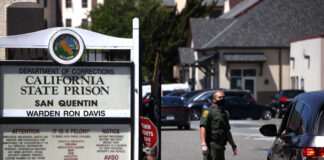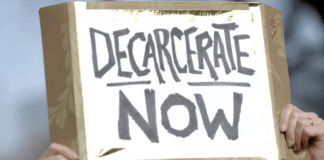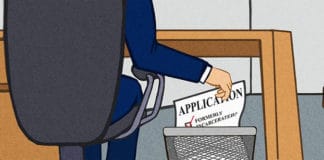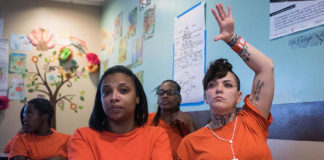Tags Prison Policy Initiative
Tag: Prison Policy Initiative
The latent evils of the Board of Parole Hearings (BPH) and...
The Board of Parole Hearings (BPH) continues to make arbitrary and capricious parole release decisions, illegally, with our tax dollars and in our names, committing genocide against our community members.
Beacons of hope: Humboldt State’s Project Rebound builds a prison-to-college pipeline
Project Rebound at HSU breathes life support into possibilities for life successes to people returning from incarceration and at-risk youth.
Parenting from prison: Ways to maintain your family ties while incarcerated
As tortuous as the U.S. prison system is to its residents, it is criminally so to the children of incarcerated parents, and their caretakers. Herein lies a wealth of inspiring and uplifting ways to proactively heal the daily wounds of parenting, family unity and staying human while incarcerated.
Prisons and jails are COVID-19 super-spreaders
The numbers are staggering. We have all heard the term “petri dishes” applied to our prisons, jails and detention centers. Discover the details in this short, concise no frills layout of how Gov. Newsom has abetted the deliberate indifference towards preventable deaths and suffering of our loved ones inside prisons and innocents in the communities where our prisons are located.
States say they’re decarcerating, yet 1 in 5 prisoners has had...
Trapped behind the walls she said, “In the beginning, I used to flippantly say that when the COVID finally comes here, the prison will just let us all get sick and die. I thought that I was just being dramatic, but it might have been more prescient than I know.”
Rev. Jesse Jackson: Let prisoners go during COVID-19 pandemic
Across the globe, prisoners are among the most vulnerable to the coronavirus. Overcrowded facilities, shortages of food and medicine, and inadequate testing expose prisoners who are disproportionately poor and afflicted with prior conditions that render them vulnerable to the disease.
No need to wait for pandemics: The public health case for...
Prison Policy Initiative offers five examples of policies that could slow the spread of a viral pandemic in prisons and jails – and would mitigate the everyday impact of incarceration on public health.
New report calculates the first unemployment rate for formerly incarcerated people:...
For the 5 million formerly incarcerated people living in the U.S., landing a job means more than just personal success: It means finding a place in their communities and being able to care for their loved ones again. It’s well known that the obstacles to finding a job are severe for people who have been to prison. The scale of this problem, however, has been difficult to measure – until now.
I was a slave working under the California Department of Corrections
Though few Americans know it, the exception clause in the 13th Amendment makes a person a slave when they are convicted of a crime and sent to prison. I know that former President Barack Obama, a constitutional scholar and a Black man, understands this. I applaud his efforts to address issues of mass incarceration. I understand the symbolism of his visit to a federal prison, the only American president to ever do so. These were important first steps, but there is a long road ahead.
SF city attorney calls state bail schedule unconstitutional, announces he won’t...
City Attorney Dennis Herrera declared that the state’s current bail system is unconstitutional, and, in a court filing, Herrera said he will not defend the bail system in a federal class-action lawsuit brought by a national civil rights group against San Francisco’s sheriff. “This two-tiered system of pretrial justice does not serve the interests of the government or the public and unfairly discriminates against the poor,” Herrera told the court.
George Jackson University supports the historic Sept. 9 strike against prison...
Sept. 9, 2016, is the day that many people in America are wholeheartedly organizing, mobilizing, taking action, standing and locking arms in solidarity against what we know as prison slave labor – yes, legalized slavery – and people are saying, “No more!” Even though there are many taking action and answering the call to cure this particular ill of society, there is an overwhelmingly larger portion of the U.S. population who are absolutely clueless to the fact that slavery still exists.
Prisoners in multiple states call for strikes to protest forced labor
Prison inmates around the country have called for a series of strikes against forced labor, demanding reforms of parole systems and prison policies, as well as more humane living conditions, a reduced use of solitary confinement and better health care. The strike’s organizers remain anonymous but have circulated fliers listing a series of grievances and demands and a letter articulating the reasons for the strike.
FCC cuts predatory phone rates to reconnect prisoners’ families
On Oct. 22, 2015, at an open meeting, the Federal Communications Commission (FCC) passed proposed rules that substantively reform what advocates call a broken prison and jail telephone industry. The package of reforms ushered in by FCC Chairman Tom Wheeler and Commissioner Mignon Clyburn was heralded by advocate organizations that comprise the Campaign for Prison Phone Justice, along with myriad criminal justice reform and civil rights groups.
















